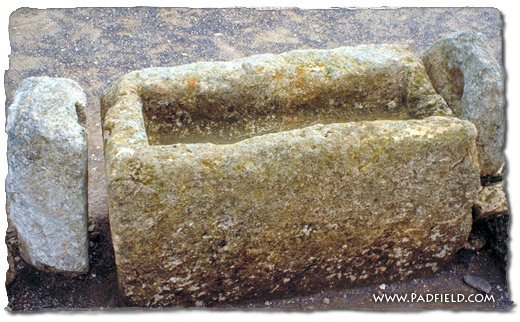Away In A Manger...
by David Padfield

Can you identify the object in the above photograph? It is a manger, like the one our Savior was placed in as a baby. Luke tells us that Mary "brought forth her firstborn Son, and wrapped Him in swaddling cloths, and laid Him in a manger, because there was no room for them in the inn" (Luke 2:7).
Don't feel bad if you didn't recognize it—a Jew from the first century would never recognize the "manger" displayed in the typical American nativity scene today.
A manger is a feed trough found in a stable. In Bible times mangers were made from clay mixed with straw or from stones held together with mud; sometimes they were carved in natural outcroppings of rock. I took the above photograph at Megiddo where this manger was used in the stables of King Ahab.
When our Lord was born, He who was destined to sit on the "throne of His father David" (Luke 1:32) was placed in a simple feed trough.
An angel appeared to shepherds in the field and said, "Do not be afraid, for behold, I bring you good tidings of great joy which will be to all people. For there is born to you this day in the city of David a Savior, who is Christ the Lord. And this will be the sign to you: You will find a Babe wrapped in swaddling cloths, lying in a manger." (Luke 2:10-12). The shepherds immediately went to Bethlehem "with haste and found Mary and Joseph, and the Babe lying in a manger" (Luke 2:16).
The typical nativity scene of today has another glaring error—the scene usually shows the wise men at the manger. However, they did not find Christ at the manger, but rather at His house (Matt. 2:11).
